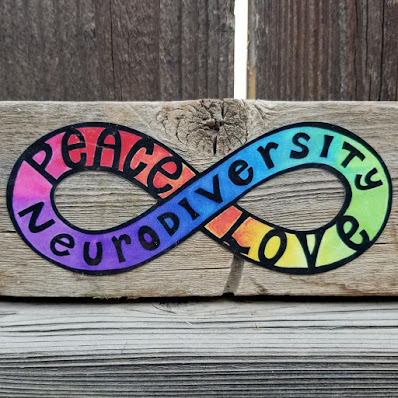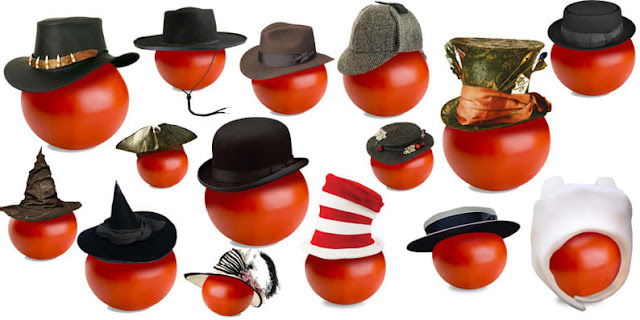Donnie Darko and Opium
Being a teenager is hard. You experience so much change in such a short amount of time. 5 years is the entire incumbency period for a British Prime Minister, in which so many things can be pushed through. The same happens with your body. Hair sprouts, limbs grow and your perception of the world can evolve, deepen and darken. This doesn't mean we all start watching Donnie Darko endlessly and wearing black hoodies and listening to My Chemical Romance. But it does mean we become more intimately connected to one another, and one anothers' fears and anxieties. Even if we aren't aware of it.
The struggles of teenagers are layered and complex and I certainly won't be able to provide a thorough and meaningful breakdown of the human condition between the ages of 11 and 16. But to throw undiagnosed autism into the ever-spinning tombola of neuroses that exists within every teenage boy is to complicate my experience growing up, whilst making the world that little bit more mysterious.
With this in mind, during an autism outreach seminar that I was kindly invited to take part in on 24th March, I was posited the question: what is your worst experience of other people?
Funnily enough, it was at school. I was about 12/13 years old, when my form tutor asked: ‘does anyone play football at county level?’ I responded ‘no, I do play football but we’re not that good’, referring specifically and very, very literally to county level teams. For the unaware, county level teams are teams that play in the highest regional league before turning semi-professional. Two of my teammates overheard, so as I got home that night after a long school day I opened MSN to a group chat including them two, and a number of popular girls from different schools around the area, threatening me with violent death and calling me a number of homophobic and ableist slurs.
Obviously, my first reaction was primal fear, and I don’t recall if I went in the next day. But more than that, it was my first real exposure to how strange humans fundamentally were. It opened my eyes to what a lot of the authors I was reading at the time were driving at; we have to make peace with this pervasive strangeness otherwise we’ll do ourselves real damage, wondering how and why things like this happen. This informs my response to something else that happened during the group chat: they all started bantering with one another, completely ignoring me, as though they were dogs who in savaging the poor squirrel, were then more interested in one another's rectal scents. I realised to them, this was just a "thing" that they made happen, and won't condition their responses to groups and group activities for years to come. The worst part about the experience was that I never told anyone. Allow it to be a lesson, neurodiverse or neurotypical, that the trauma I chose not to share is the one that springs to mind when questioned about the capacity for people to do harm.
Obviously, I don’t think I’m exceptional and I know that this stuff happens to non-autistic teenagers too. But I didn’t understand the extent to which this reaction was received as normal by everybody in the group chat. It still makes me despair a little, and I remember this incident with a sense of unresolved trauma, because we already know that toxic masculinity, bravado and banter for the sake of banter still defines the way men specifically interact. Combining these with the huge senses of ego some men possess, the backlash to conversations about overcoming toxic masculinity, and overcoming patriarchal power more generally, is quite dispiriting. The 'patriarchy' is not a cabal of shadowy globalists that are hell-bent on replacing you at your job with muscular lesbians who shoot lasers from their MenDestroyer2000s. It is an intersectional system that fashions to keep all men from having and evolving conversations about their role in society, and whether or not we should and can challenge them.
One of the ways in which autistic men are often described is 'warm'; they have a welcoming and loving aura around them, even if they get violent during meltdowns. They are insistent on giving unconditional love and support to those who they deem worthy, and aren't too bothered about oversharing because its predicated by love, and not the need for attention. The spectre of embarrassment lingers at the back of my mind, but I think the consequences to 'over-sharing' are generally too good and far-reaching for me to keep traumatic things to myself. Another scenario in which I found myself was pretty deeply mired in moral poverty, and be warned: this may constitute oversharing, despite me being reasonably confident a lot of teenage boys have experienced something similar. If you're embarrassed by the potential of oversharing, it would probably be wise to finish here.
I took a friend, a girl, to my other friend's party on what could reasonably be considered a date, during which she became... *involved*... with another bloke. I've been assured by a lot of people that this shouldn't reflect badly on me but this quite obviously breaks the social contract in a myriad of ways. I think if not for the experience with the members of my football team, I would come away from this one deeply scarred and deeply alienated from every single person I would go on to meet. To some extent that's true, but that prior experience had already showed me how deeply someone can hurt you without necessarily being self-aware of, and in, their malicious drive for pleasure. Horrifying results can come from the most mundane of cause-and-effect chains. Hannah Arendt, the Jewish philosopher, called this the "banality of evil". Bad feelings result from others' simple existence.
I think despite this reasonably pessimistic conclusion, I think I can look back and laugh. The guy in question reckons the 'plandemic' is a hoax and the vaccine is transplanting microchips into us, whilst also suggesting that we also couldn't have made a vaccine for another four years. Go figure.
I don't want to alienate you all by posting cathartic stories of me being 'down bad', so I'll end with this: autism can underlie the most wonderful and intimate connections you'll likely ever feel. If you have an autistic friend, or partner, you know you're guaranteed to be someone else's world. You will live through them, perhaps through an action they love to copy, or through something you regularly say or do, or simply through the love you reciprocate. They will make sense of the world through you. They will appreciate and attempt to repay every single accomodation you make for them. Your existence will be an opiate; the 'pain' will still be there, but your mere presence will numb the world's harshness and trim its edges. As with everything in life, and in the neurotypical world, the bad possesses a unique staying power. That shouldn't detract from the good.




I wish I could have helped you through this xxxx
ReplyDelete